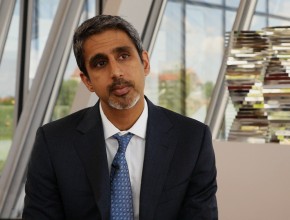How should we prepare a patient with cardiovascular disease for a major surgery? What diagnostic procedures should we perform? Should we start a new treatment or change the already used drugs or their doses?
P.J. Devereaux: In terms of preparing patients for noncardiac surgery, the first thing to do is identify patients who are at risk of major cardiac complications. This includes anyone over the age of 45 or patients under the age of 45 with known major cardiovascular disease, such as coronary artery disease, peripheral vascular disease, cerebrovascular disease, pulmonary hypertension, or severe aortic obstructive lesions like aortic stenosis, mitral stenosis, and obstructive hypertrophic cardiomyopathy. In all those patients, you want to take a history and evaluate them. We recommend that people use the Revised Cardiac Risk Index to assess their clinical risk.
In those patients who are aged 65 or more or in patients under 65 with known vascular disease, we recommend to measure N-terminal prohormone of brain natriuretic peptide (NT-proBNP) or brain natriuretic peptide (BNP) levels before noncardiac surgery. NT-proBNP values above 300 substantially increase your risk of a major complication and values below 300 substantially decrease it. BNP values above 92 substantially increase the risk and values below 92 substantially lower the risk.
We recommend against using preoperative noninvasive cardiac stress testing – both echo or nuclear testing – or echocardiography, or preoperative coronary computed tomography (CT) angiography. The reason is those tests do not improve overall risk estimation, whereas NT-proBNP and the clinical models do improve overall risk estimation.
Once you have established patients who are at risk using those measures, we recommend that you try to promote smoking cessation prior to noncardiac surgery. This also includes using nicotine replacement therapies to get people to be nonsmokers.
For patients who are on aspirin chronically, there is strong evidence to actually stop their aspirin at least 3 days before surgery and to not restart it until at least 7 days after surgery. For patients who are on a chronic beta-blocker, we recommend to continue it but we recommend not initiating new beta-blockers if they are not on a beta-blocker. For patients who are taking an angiotensin-converting enzyme (ACE) inhibitor or angiotensin receptor blocker, we recommend to hold these drugs at least 24 hours before surgery because they are associated with dramatic increases in clinically significant hypotension that can lead to major cardiovascular events.
Those are the basic things that one should look to do prior to noncardiac surgery and the management of the drugs in people going forward for surgery.
 English
English
 Español
Español
 українська
українська









